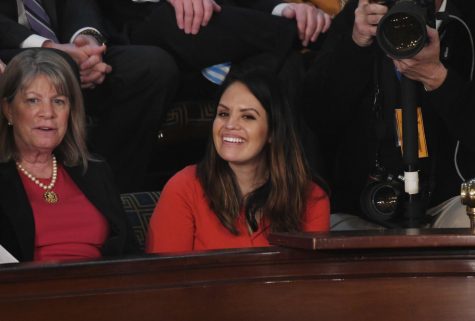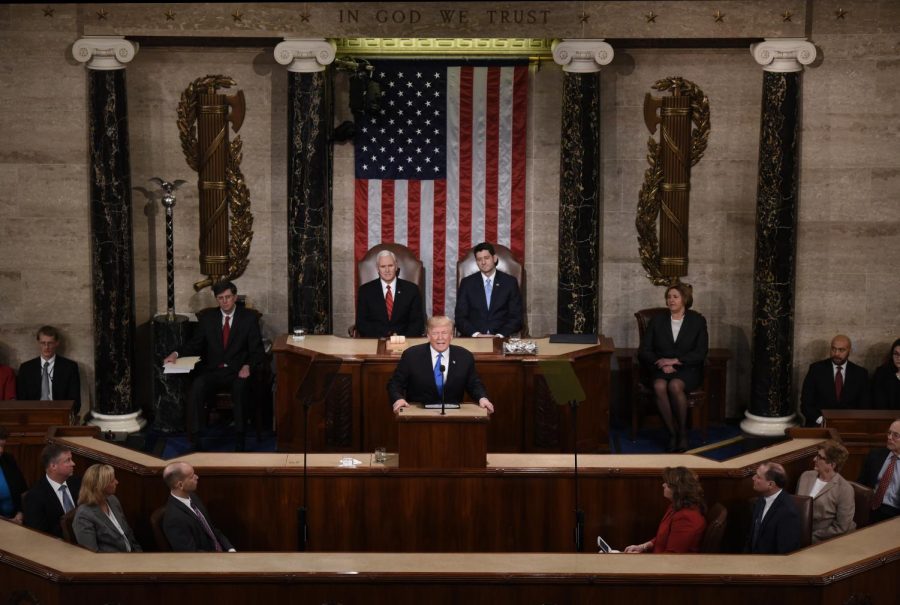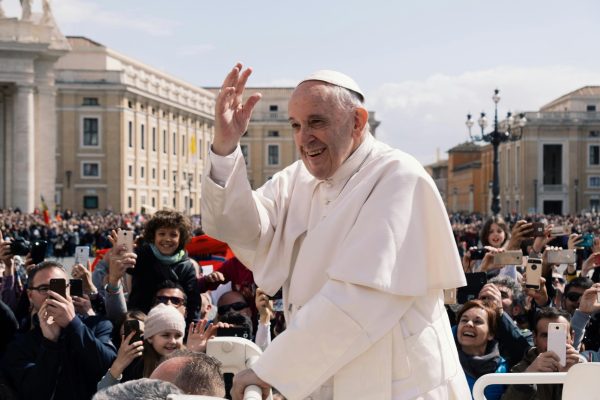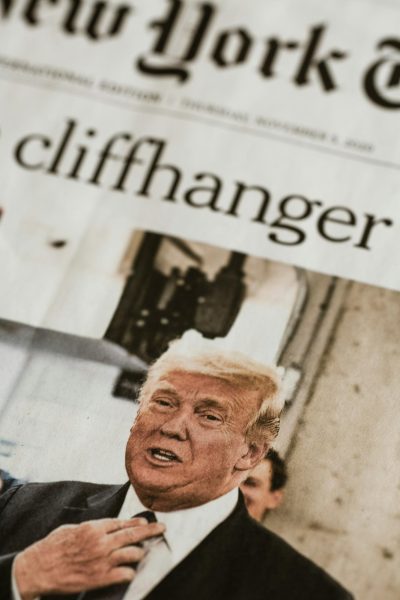Donald Trump’s first State of the Union address, a call for bipartisanship
Donald Trump delivering his first State of the Union address courtesy of Tribune News Service (Olivier Douliery/Abaca Press)
In the third longest State of the Union address in United States history; President Donald Trump spent 80 minutes speaking to a record-breaking 47.7 million viewers in what can only be described as a delicate balancing act between pleasing his base, and appealing to more moderate Americans.
Trump began his speech by addressing Congress and honored guests at the United States Capitol building in an uplifting manner as he told stories of Americans who acted heroically in 2017. Among those mentioned were Coast Guard Petty Officer Ashlee Leppert who was a first responder during Hurricane Harvey in Houston, and David Dahlberg, a firefighter who saved 60 children at a camp during the wildfires in California
Bipartisanship was a common theme during the State of the Union address with Trump calling to all members of Congress “…to set aside our differences, to seek out common ground, and to summon the unity we need to deliver for the people we were elected to serve.”
Like many presidents before him, Trump spent a considerable amount of the speech touting the accomplishments of his administration. Successes mentioned by Trump centered largely on the job creation, low unemployment rates, and a stock market, which has, in Trump’s words, “smashed one record after another”.
Trump appealed to his base of rural, low to middle-income Americans when he spoke about the benefits of his economic policies for small businesses. The economic policy mentioned specifically was the Tax Cuts and Jobs Act which was passed by Congress on Dec. 22 of 2017.
In an attempt to exhibit the “everyday” Americans who would benefit from the tax cuts, Trump introduced Steve Staub and Sandy Keplinger of Staub Manufacturing.
Staub and Keplinger currently run a small manufacturing business in Ohio and, according to Trump, “have just finished the best year in their 20-year history.”
Trump went on to say, “because of tax reform, they are handing out raises, hiring an additional 14 people, and expanding into the building next door.”
In a divisive move, Trump appealed to his religious supporters saying, “In America, we know that faith and family, not government and bureaucracy, are the center of American life. The motto is ‘In God We Trust.’”
Religious statements such as these, though not unprecedented, are not common in Trump’s speeches, and are widely viewed as a calculated move aimed at rekindling support from evangelical Christians who may have been bothered by scandals surrounding the extramarital affair between a pornographic film star, Stormy Daniels, and Trump.
The entirety of the State of the Union address was not focused on domestic politics, however; Trump also used the podium to talk about the growing adversarial relationship between the United States and North Korea.
“North Korea’s reckless pursuit of nuclear missiles could very soon threaten our homeland. We are waging a campaign of maximum pressure to prevent that from happening” said Trump in a manner that was duel parts ominous and vague.
Donald Trump’s protectionist tone extended to the issue of immigration reform currently being debated including Deferred Action for Childhood Arrivals [DACA], border security, and ending “chain-migration” and the visa-lottery.

The State of the Union address was concluded on a positive note with Trump saying that as long as Americans have “faith in God” our nation will be “forever be safe and strong and proud and mighty and free.”











